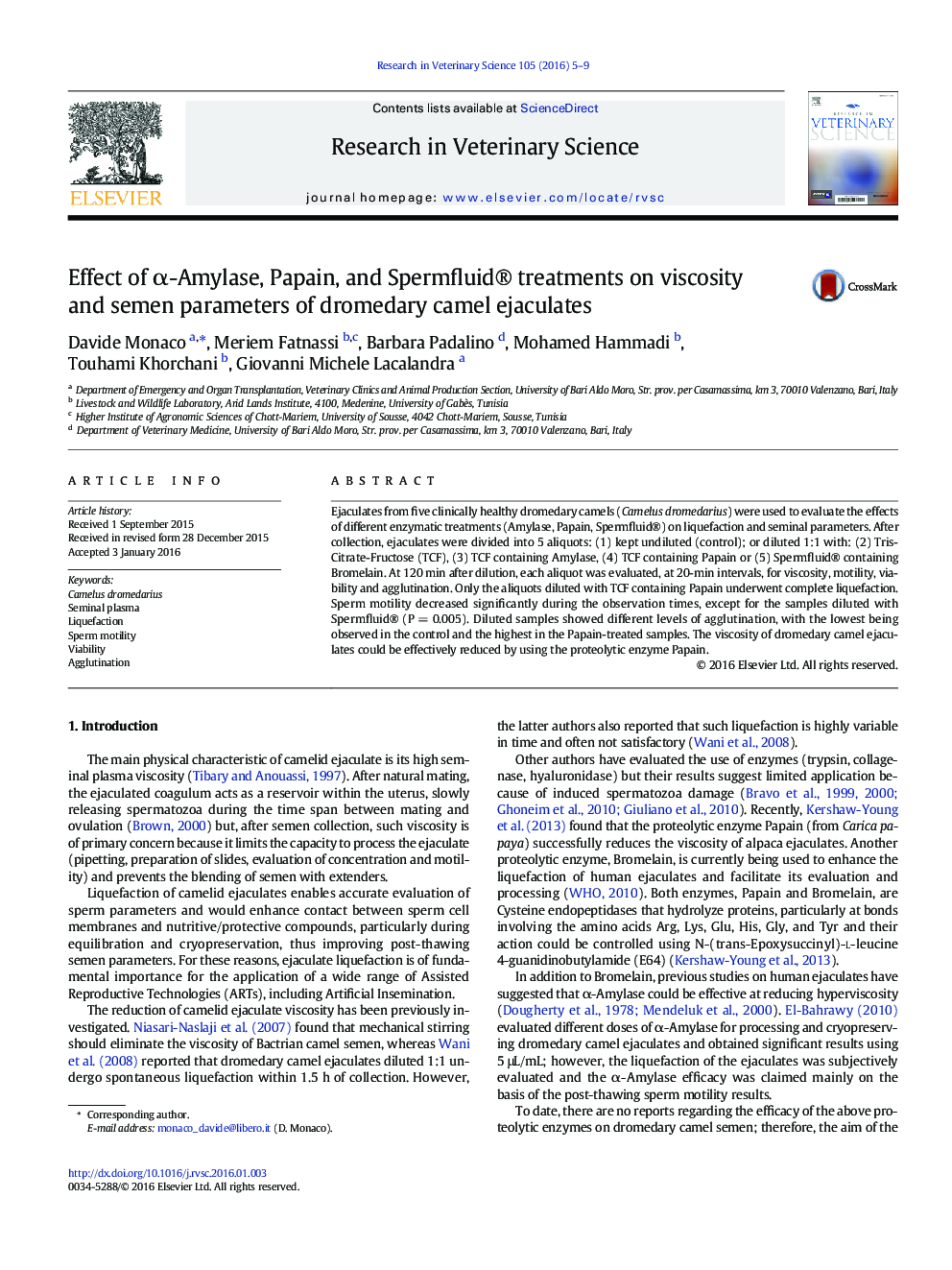| Article ID | Journal | Published Year | Pages | File Type |
|---|---|---|---|---|
| 5794397 | Research in Veterinary Science | 2016 | 5 Pages |
â¢The viscosity of seminal plasma limits the development of Assisted Reproductive Technologies (ARTs) in dromedary camel.â¢This work investigated the effect of 3 enzymes on seminal plasma liquefaction.â¢Papain is the most effective for eliminating the viscosity.â¢Head to head agglutination was observed.â¢Reason for agglutination needs further investigation.
Ejaculates from five clinically healthy dromedary camels (Camelus dromedarius) were used to evaluate the effects of different enzymatic treatments (Amylase, Papain, Spermfluid®) on liquefaction and seminal parameters. After collection, ejaculates were divided into 5 aliquots: (1) kept undiluted (control); or diluted 1:1 with: (2) Tris-Citrate-Fructose (TCF), (3) TCF containing Amylase, (4) TCF containing Papain or (5) Spermfluid® containing Bromelain. At 120Â min after dilution, each aliquot was evaluated, at 20-min intervals, for viscosity, motility, viability and agglutination. Only the aliquots diluted with TCF containing Papain underwent complete liquefaction. Sperm motility decreased significantly during the observation times, except for the samples diluted with Spermfluid® (PÂ =Â 0.005). Diluted samples showed different levels of agglutination, with the lowest being observed in the control and the highest in the Papain-treated samples. The viscosity of dromedary camel ejaculates could be effectively reduced by using the proteolytic enzyme Papain.
